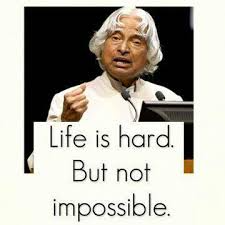Key Takeaways:
- Effective motivation of teams stems from understanding their unique needs and employing tailored strategies.
- Leaders can significantly enhance both productivity and morale by implementing structured goal-setting techniques.
In the ever-evolving landscape of business, leaders face an ongoing challenge: motivating their teams to achieve peak performance. Understanding the intricacies of team dynamics and individual motivations is paramount for fostering a culture of engagement and productivity. In this article, we will delve into effective strategies for motivating teams, with a focus on clear communication, goal setting, and cultivating a supportive environment.
The Importance of Motivation in Teams
Motivation is the driving force that propels team members to contribute their best work. A motivated team is more likely to be engaged, productive, and less prone to turnover. However, motivating a diverse group of individuals can be complex. Different employees have different motivators—some thrive on recognition, while others may seek personal fulfillment, job security, or opportunities for growth. As a leader, recognizing these differences is the first step towards developing an effective motivational strategy.
How Can Leaders Communicate Effectively?
Effective communication is the cornerstone of successful motivation. Leaders must prioritize open lines of communication, not just to relay information but also to listen to team members. Whether through regular check-ins, feedback sessions, or informal conversations, creating an environment where employees feel heard can significantly boost morale. A few key communication strategies include:
- Promote Transparency: Share organizational updates and decisions that impact the team. Transparency fosters trust and empowers employees to feel invested in the direction of the company.
- Encourage Feedback: Create avenues where team members can voice their opinions or suggestions. This involvement helps them feel valued and respected.
- Celebrate Wins, Big and Small: Regularly acknowledging team accomplishments, no matter their size, encourages a positive atmosphere and motivates continued success.
What Role Does Goal-Setting Play in Motivation?
Setting clear, achievable goals is integral to motivating a team. Goals provide a roadmap and give team members something to aspire toward. However, not all goals are created equal. It’s essential to incorporate SMART criteria—Specific, Measurable, Achievable, Relevant, Time-bound—into the goal-setting process. This approach not only clarifies expectations but also allows for tangible tracking of progress.
Tips for Effective Goal-Setting:
- Collaborate with Team Members: Involve your team in the goal-setting process to ensure that they feel a sense of ownership over their objectives.
- Align Goals with Company Vision: Ensure that individual and team goals align with the broader company objectives. This coherence cultivates a sense of purpose and direction.
- Regularly Review Goals: Schedule periodic reviews to assess progress, provide coaching, and make necessary adjustments to goals as circumstances change.
How to Foster Team Engagement?
Team engagement is pivotal to maintaining motivation levels. Engaged employees are those who are emotionally invested in their work and contribute not just because they have to, but because they want to. Here are several strategies for enhancing engagement:
- Empower Decision-Making: Delegate responsibilities and allow team members to make decisions related to their work. Empowerment breeds ownership and accountability.
- Offer Professional Development Opportunities: Provide avenues for learning and growth, be it through workshops, online courses, or mentorship programs. Employees who see a pathway for advancement are more likely to remain engaged.
- Foster Inclusion: Encourage diversity of thought and make sure all team members feel included and valued. Recognizing and leveraging diverse perspectives can enhance team performance.
What are Effective Conflict Resolution Techniques?
While it’s natural for conflicts to arise within teams, how leaders manage these conflicts can impact motivation significantly. Approaching conflict resolution with a constructive mindset can lead to positive outcomes. Consider these steps:
- Address Issues Immediately: Allowing conflicts to fester can lead to resentment. Tackle issues promptly and professionally to maintain a healthy team dynamic.
- Facilitate Open Discussions: Create a safe space for team members to express their views. Active listening is crucial here, as acknowledging different perspectives can help find common ground.
- Focus on Solutions: Work collaboratively to identify solutions rather than dwelling on the problems. This problem-solving approach enhances teamwork and motivates individuals to contribute positively.
How Can Time Management Techniques Support Motivation?
Effective time management is vital for leaders striving to motivate their teams. When team members feel overwhelmed with their workloads, motivation can drain quickly. Implementing time management strategies such as prioritization, setting clear deadlines, and encouraging breaks can help alleviate stress and maintain focus. Healthy work-life balance practices also contribute significantly to sustainable motivation levels.
Conclusion
Motivating teams effectively is an ongoing process that requires intentionality and strategy. By focusing on open communication, clear goal setting, promoting engagement, navigating conflict adeptly, and supporting time management, leaders can create an environment that fosters motivation. Remember, motivated employees don’t just create successful teams; they drive the overall success of an organization. A motivated team is not only more productive but also enhances workplace morale, innovation, and commitment. As leaders, it is essential to continuously assess and adapt motivational strategies to meet the dynamic needs of your teams.








